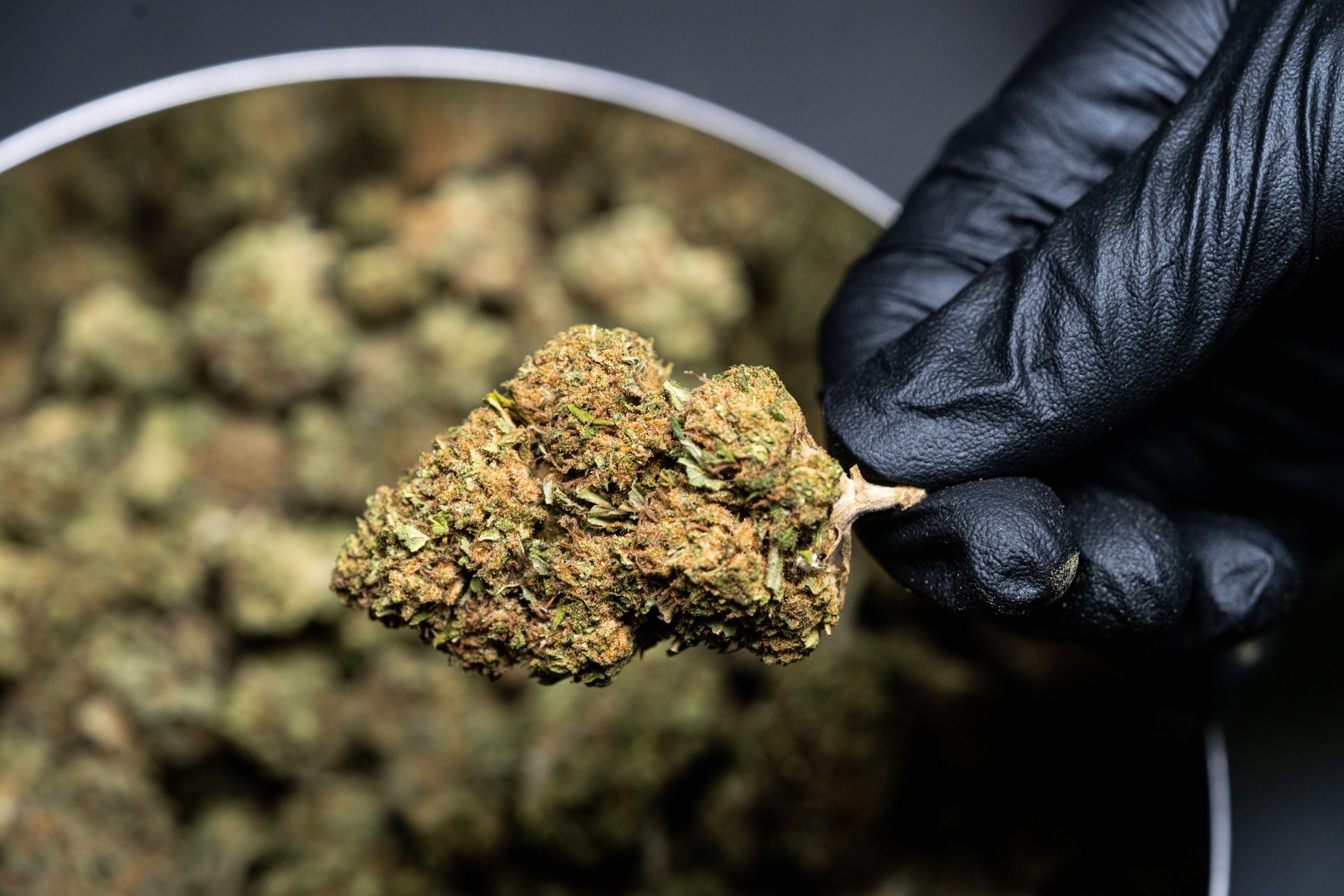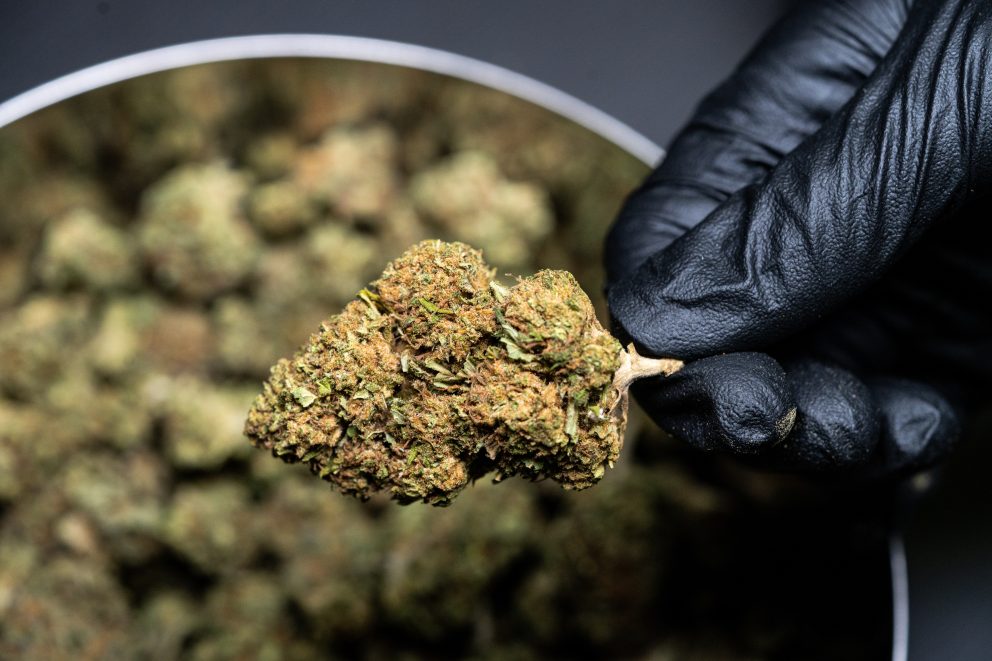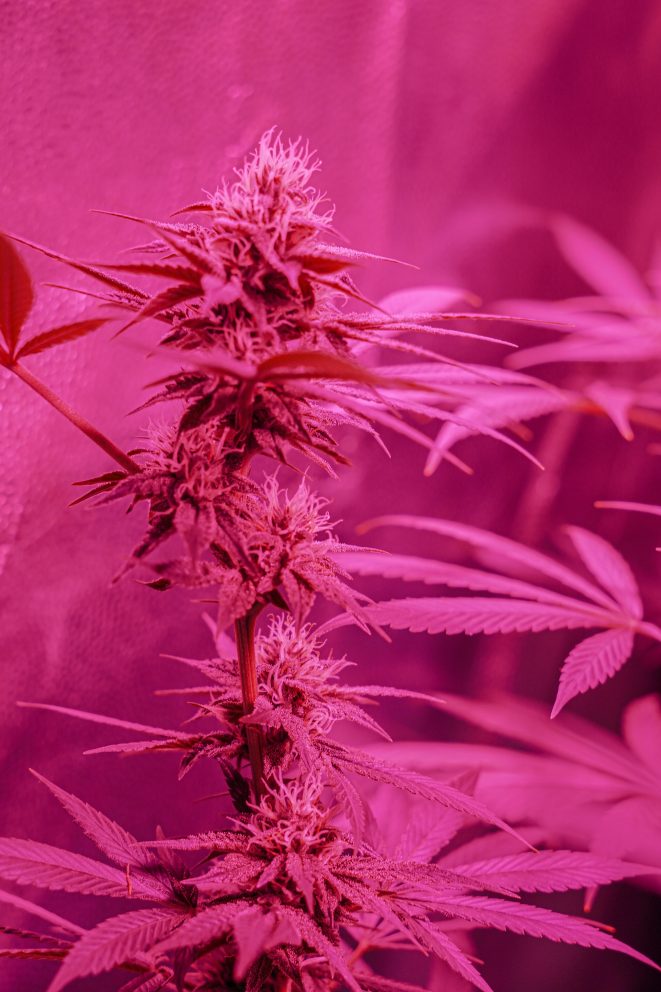
What is the Difference Between THC-O vs THC-P? Effects, Safety, Legality & More

Photo by CRYSTALWEED cannabis on Unsplash
We all know THC, it’s driven medical and recreational marijuana use for centuries.The burgeoning cannabis industry is not only driving a research frenzy but also leading an industry-wide search for higher highs, stronger products, and legal loopholes. It’s no surprise more types of THC are being created and discovered.
There are now multiple variations of THC. Delta-9 THC is the traditional cannabinoid we know as THC. Delta-8 and Delta-10 are chemical variants, or isomers, of THC that offer some subtler psychoactive benefits and access where cannabis is still not-yet-legal. HHC is hydrogenated THC. But what is THC-O? What is THC-P?
These fascinating chemicals are at the forefront of the search for stronger cannabinoids. Both boast a greater potency than traditional delta-9 THC, however one is natural, one is manmade, and what exactly are the differences between THC-O vs. THC-P?
This article will give you an overview of these new cannabinoids, how they work, and what they may mean for the future of cannabis.
Apply for a Medical Marijuana Card Online Today
Join over 100,000 patients who have chosen Green Health Docs as their medical cannabis doctors. We have a 99% approval rate and offer a 100% money back guarantee!
What Is THC-O?
In the same vein as Delta-8, Delta-10, and HHC, THC-O is another man-made cannabinoid gaining traction in the cannabis market. Tetrahydrocannabinol, also known as THC-O-acetate, has been synthesized to ensure a higher high. It boasts 3 times the potency of traditional delta-9 THC.
Acetic anhydride is used to synthesize THC-O. This highly flammable chemical is combined with legal CBD, delta-8 THC, or traditional delta-9 THC to cultivate THC-O. There are also CBD and CBN acetates on the market.
The addition of this chemical creates a new compound. When fully metabolized, it leaves a chemical that is similar to traditional delta-9 THC but more potent.
The novelty of these chemicals is great, after all, who doesn’t want a higher high. It’s important to note that given the flammable nature of acetic anhydride it is dangerous to make THC-O. There are also dangers in using a man made chemical as there hasn’t been adequate study about the health effects of prolonged usage.
Does THC-O Get You High?
THC-O is reported to be 3 times as potent at traditional THC. Also, users report that it can have stronger hallucinogenic properties and even mimic drugs like mescaline.
THC-O is metabolized differently than traditional cannabis so there’s no telling how it will affect you specifically. The high is also delayed until after your body has metabolized it. Use caution when first trying out this chemical to see how your body will process it.
THC-O Effects
THC-O is a prodrug which means that it’s essentially inert until it enters the body. Like with edibles, there’s a delayed reaction when you take THC-O. Whether you eat it or smoke it, it is not psychoactive until it’s been fully processed by the body.
When metabolized, what’s left is a chemical similar to pure delta-9 THC but more potent.
Some users also report that THC-O can cause:
- Hallucinations
- Anxiety
- Dizziness
- Paranoia
- Sedation
- Vomiting
- Seizures
One of the benefits of THC-O is in cases where patients must consume super high amounts of THC as part of treatment for a condition. THC-O can help in these cases by giving patients access to more THC.
Is THC-O Safe?
There still has not been adequate research into the long term effects of THC-O use. However, there have been studies into the dangers of vaping THC-O. The heating of an acetate chemical like the vitamin-E acetate in some e-cigarettes has been linked to EVALI, which is a lung issue that’s even been shown to cause death.
Heating THC-O can be dangerous. Heating acetates creates ketene which can cause lung damage even with limited exposure. This means smoking any form of THC-O the way you would smoke weed can put you at risk of lung damage and other health risks.
As of now, edible forms of THC-O are safe to consume and available. However, like with traditional edibles, you won’t know until they’re metabolized how high you will get and should be even more cautious than you would with traditional THC edibles since you won’t know how THC-O’s increased potency will affect you.
Is THC-O Legal?
THC-O also falls into the legal gray area of delta-8 and delta-10. If THC-O is cultivated from legal hemp it’s covered under the 2018 Farm Bill which separated hemp and low concentration derivatives from the definition of “Marijuana” in the Controlled Substances Act (CSA).
However, with growing savviness over the cannabis industry means more of these derivatives will be named outright in legislation. Recently, South Dakota’s governor, Kristi Noem, signed House Bill (HB) 1292, legalizing the sale of delta-8 THC, THC-O acetate, and hexahydrocannabinol (HHC) in her state.
Given its potency and potential health issues it’s likely THC-O may find itself named directly in more cannabis legislation.

Photo by Juan Miguel Restrepo Barrera:
What Is THC-P?
Unlike THC-O which is manmade, THC-P (delta 9-Tetrahydrocannabiphorol) is a recently discovered cannabinoid boasting greater potency. In an Italian study, researchers used mass spectrometry and metabolomics to discover two new cannabinoids adding to the 120 that have already been found in cannabis.
In addition to THC-P, CBD-P was also discovered. As well as their precursor acids, before decarboxylation, THCP-A and CBDP-A. Like with many popular cannabinoids they exist as acids until they’re heated and become a form that can be metabolized.
THC-P exists naturally in cannabis plants in very low concentrations below 0.1 percent. The Italian-bred FM2 strain contains almost 0.1% THC-P. When compared to the traditional THC concentrations in your average strain 25-30% that’s not that high.
However, this small amount may still point to why some strains feel significantly stronger than others as THC-P boasts being 33 times more potent than traditional THC.
THC-P Effects
Traditional THC has a five-carbon atom chain, while THC-P’s has seven carbon atoms. This makes THC-P way more biologically active. This chain allows for 30 times higher bonding activity at CB1 endocannabinoid receptors.
The bonding at CB1 cannabinoid receptors is part of what makes THC and THC-P psychoactive as these endocannabinoid receptors govern the euphoria some feel when using cannabis as well as the munchies.
When THC is consumed and binds to the cannabinoid receptors in the brain, there is a release of the endocannabinoid – anandamide. This stimulates the mind’s reward system and creates an experience similar to a dopamine release.
With THC-P, there’s a higher likelihood of bonding and more of the THC-P can bond to these receptors increasing these effects.
Does THC-P Get You High?
THC-P getting you high is an understatement. The exponential potential to bond to CB1 receptors means the chances to feel significantly higher. THC-P can get you almost 33% higher than a comparable dose of straight THC.
Also, products on the market, made from legal hemp, say that THC-P is 60 times stronger than delta-8. THC-P is the strongest cannabinoid not just in the plant but, as of now, in the cannabis industry.
Is THC-P Safe?
THC-P was only discovered in 2019 and THC-P is only found in small concentrations in cannabis. There’s no telling what will happen as more THC-P specific products begin to hit the market and what effect this may have. After all, it may exist in trace amounts for good reason.
THC-P can be extracted and isolated from hemp and marijuana using chromatography techniques. This means the market can soon be flooded with more semi-legal forms of THC-P made from hemp or THC-P for sale at dispensaries.
Given THC-P’s potency ,it’s important to be mindful of the potential for overdose. While not fatal or dangerous, it can cause anxiety, hallucinations, vomiting, and heart palpitations.
Also, it’s important to familiarize yourself with how your THC-P products are made. Many of the products on the market made from legal hemp can avoid some of the stringent testing policies of legalized cannabis meaning the potential for exposure to harsh chemicals derivatives or remnants which can cause health problems.
Is THC-P Legal?
Delta-9 THC is the only cannabinoid scheduled by the Convention on Psychotropic Substances, meaning THC-P is technically internationally legal. If it’s derived from hemp plants, rather than marijuana plants it is also covered by the same protections as delta-8, delta-10, HHC, and other legal cannabinoid products in the United States.
Given it is relatively new, it may not be directly named in any legislation that targets delta-8 or delta-10 or other semi-legal cannabinoids. That being said, as of now THC-P is legal in:
- Alabama
- California
- Colorado
- Connecticut
- Florida
- Georgia
- Hawaii
- Illinois
- Indiana
- Kansas
- Kentucky
- Louisiana
- Maine
- Maryland
- Massachusetts
- Michigan
- Minnesota
- Missouri
- Nebraska
- New Hampshire
- New Jersey
- New Mexico
- New York
- North Carolina
- North Dakota
- Ohio
- Oklahoma
- Oregon
- Pennsylvania
- South Carolina
- South Dakota
- Tennessee
- Texas
- Vermont
- Virginia
- Washington
- West Virginia
- Wisconsin
- Wyoming
It is still important to check regularly with your state cannabis laws to know what products are and are not legal before purchasing, selling, or consuming these products.
THC-O Vs THC-P
There are quite a few differences between these two compounds. The most notable is that THC-O is a man made chemical that does not exist in nature while THC-P can be found naturally in the cannabis plant.
There are man made versions of THC-P on the market and both THC-O and THC-P are in the suite of cannabinoids on the market in states where cannabis is not quite legal.
Given its chemical make-up, THC-O is actually dangerous to smoke. THC-P on the other hand has not reported any significant issues related to smoking the product.
Both compounds are still new enough that they should be taken with some caution as there has not been adequate study into their use or what high concentrations or prolonged exposure of these compounds will do to the human body.
While THC-P is natural, that doesn’t mean that it’s meant to be consumed in high doses. It exists in such low concentrations that products made entirely of the THC-P can increase your potential for overdose.
One major difference, as mentioned earlier, is THC-O is a prodrug meaning that even whether it is smoked or eaten it’s not psychoactive until your body has processed it. Essentially, THC-O is a chemical that when digested leaves THC like compound that makes you high. That compound is what is 3 times more potent than THC.
THC-P is similar to THC in that your body metabolizes it and while metabolizing it, the THC-P bonds to your CB1 receptors only more readily than traditional THC.
Apply for a Medical Marijuana Card Online Today
Join over 100,000 patients who have chosen Green Health Docs as their medical cannabis doctors. We have a 99% approval rate and offer a 100% money back guarantee!
Is THC-P Stronger Than THC-O?
Yes, THC-P is 33x stronger than THC while THC-O is only three times stronger than traditional THC. That ] means THC-P is significantly stronger than THC-O and important to keep in mind when trying the products with similar names but vastly different chemical make-ups.
Final Thoughts
Cannabis is a big business and a major addition to modern medicine. That growth is leading to new scientific discoveries like newly discovered cannabinoids like THC-P and chemical creations like THC-O.
These drive new products for people seeking stronger highs, easier access to cannabinoids, and products that circumvent prickly marijuana laws. It is still important to be cautious with new products and fresh chemical names as some of the semi-legal cannabinoids on the market are made with limited regulation.
Getting your medical marijuana card can ensure that you have ready access to legal, natural cannabis and your legal bases are covered.
 This article has been reviewed by Dr. Anand Dugar, an anesthesiologist, pain medicine physician and the founder of Green Health Docs. Graduating from medical school in 2004 and residency in 2008, Dr. Dugar has been a licensed physician for almost 20 years and has been leading the push for medical cannabis nationwide.
This article has been reviewed by Dr. Anand Dugar, an anesthesiologist, pain medicine physician and the founder of Green Health Docs. Graduating from medical school in 2004 and residency in 2008, Dr. Dugar has been a licensed physician for almost 20 years and has been leading the push for medical cannabis nationwide.
